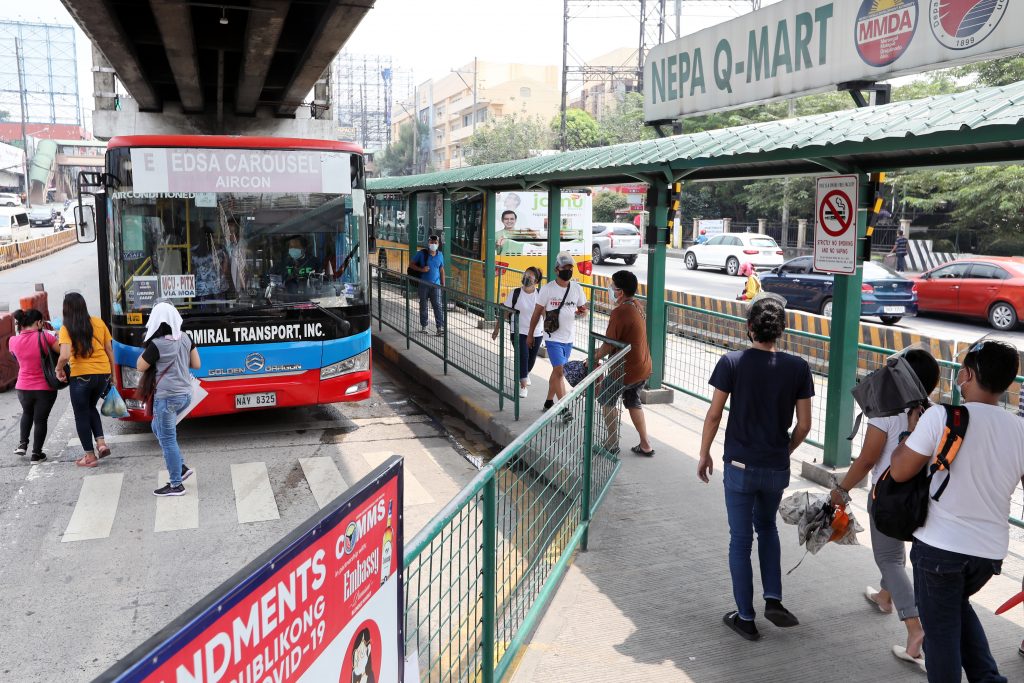News
Transport group calls for return of provincial buses on Edsa

MANILA – The coronavirus disease 2019 (Covid-19) pandemic has forced major changes in public transportation along the Epifanio Delos Santos Avenue (Edsa) in Metro Manila.
With no more direct routes from key North Luzon cities to Pasay and from key South Luzon cities to Quezon City, commuters taking provincial buses on a regular basis settle for stopovers at the designated provincial bus terminals before stepping foot on EDSA carousel buses to the nearest station and riding another mode of transportation to their destination.
Sometimes, especially if they are in a hurry, they would ride a transport network vehicle service like Grab or Angkas right after getting off the provincial buses.
Either way, they prove to be more costly and time-consuming than when the provincial buses were allowed to traverse mainly through EDSA before the pandemic.
“Ramdam na ramdam mo yung hirap sumakay at makarating (You really the feel the struggles of commuting) from Point A to Point B,” Dom Hernandez of Pasada, a transport group seeking a place in the Congress as a party-list, said at the Pandesal Forum in Kamuning, Quezon City on Monday.
But with the so-called “pandemic endgame” approaching, Hernandez and two other advocates for public transportation believe provincial buses should be allowed to drive through EDSA again.
“We need to prioritize higher-capacity vehicles and public transport in all our major roads,” said Robert Siy, a transport economist and public transport advocate.
Siy is also a part of the Move As One Coalition which describes itself as “a coalition of Filipino organizations and individuals advocating for a safer, more humane, and more inclusive public transportation system in the Philippines.”
“It’s really a matter of public service,” added Hernandez, who is designated as Pasada’s first nominee should it get enough votes to win at least one congressional seat.
Meanwhile, Hernandez believes that the current ruling on provincial buses plying back and forth from Metro Manila amid the pandemic, in which only 10 percent are allowed to operate, is taking a toll on the provincial bus companies financially.
“Sa totoo lang, hindi kumikita ang mga bus operators sa 50 percent capacity sa taas ng krudo ngayon (To tell you honestly, the bus operators could not make profit at a 50 percent capacity due to high crude prices today),” he further said, although it can be noted that many bus companies were cleared to increase their bus capacity to a full seating capacity with no standing-room only passengers allowed.
Hernandez thinks that allowing more provincial buses to operate could lessen the cramping of passengers along bus terminals, which could be seen as a potential Covid-19 super spreader, especially that the Lenten season is coming up.
Former Senator Nikki Coseteng, on the other hand, said the provincial bus’ struggles should be addressed urgently.
“I think the buses should be allowed to operate tomorrow,” Coseteng said.
She also lashed out at the strict sanctions on bus violators, recalling an instance somewhere along Mindanao Avenue in Quezon City recently where bus companies were fined as much as PHP1 million per bus for certain violations that could even lead to the drivers’ arrest.
Siy, and Coseteng also graced the Pandesal Forum of Kamuning Bakery Cafe to discuss the current state of public transportation, including the struggles of the commuters.





















